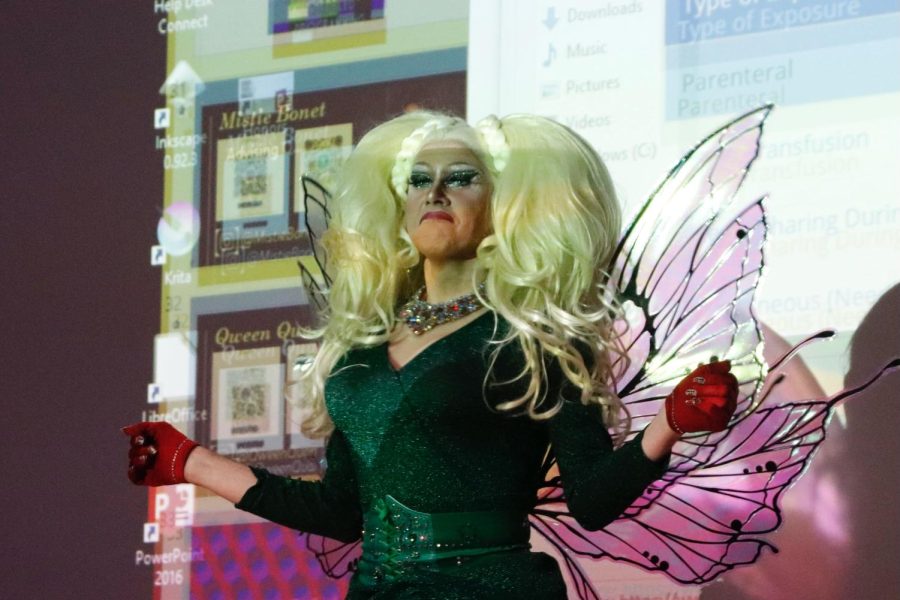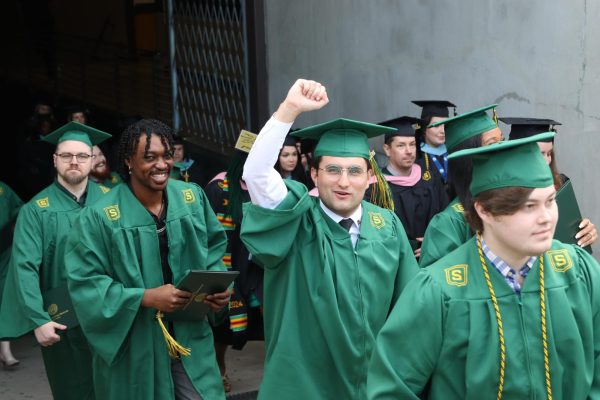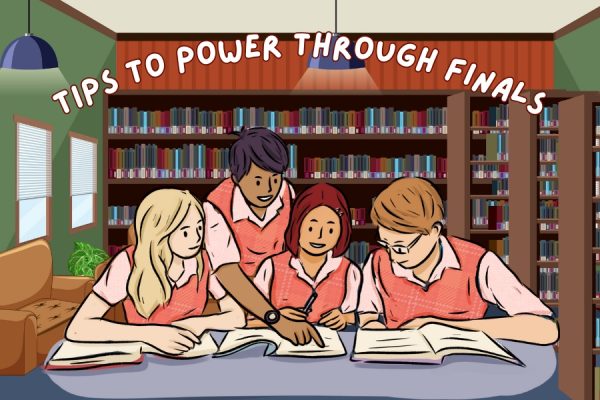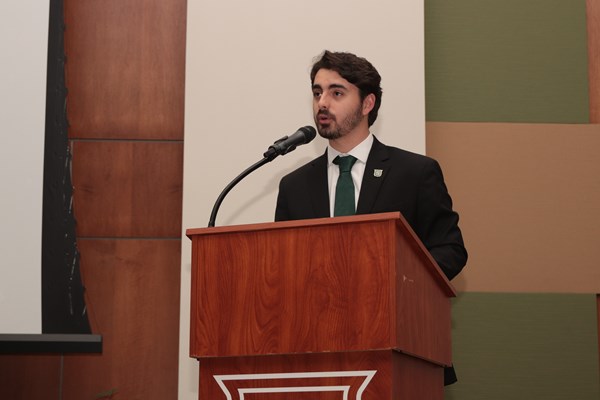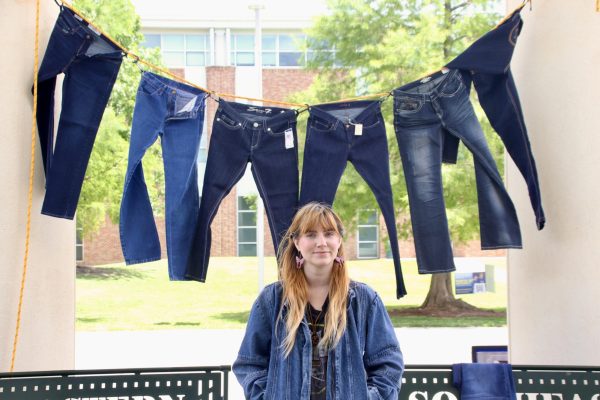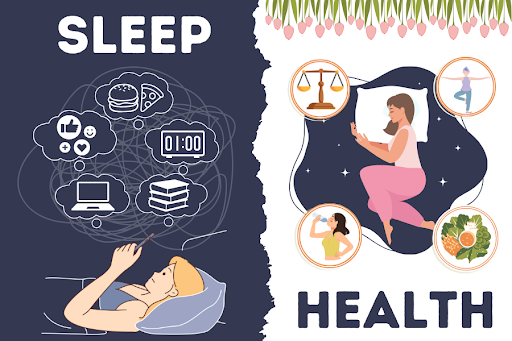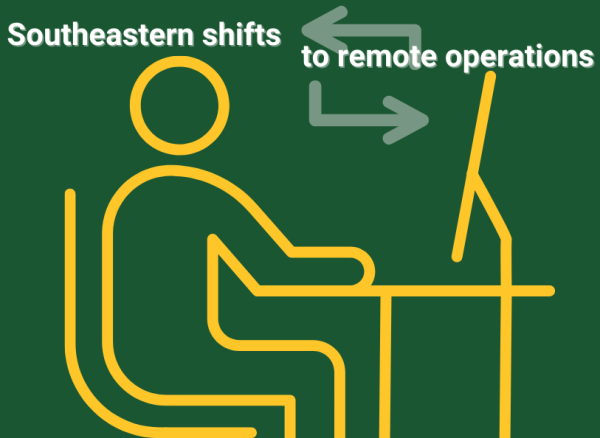Debbie with a D delivers dazzling drag show and sexual health forum
Debbie with a D put on her first of multiple performances before she led discussions on sexual health.
On Wednesday night, a vibrant and joyful Southeastern crowd gathered in the Student Union Theater for the event “Birds, Bees, and Debbie with a D,” a combined drag show and public health forum dedicated to educating students on sexual health.
The idea to host a drag show that dually served as a sexual education forum was brought to the forefront by Dr. Marc Settembrino, an associate professor in the Department of Sociology and Criminal Justice.
“I have always been a fan of drag ever since I was a little baby gay,” Settembrino said.
The love he has for the art form inspired him to sponsor the event, which took place in the Student Union Theater. Settembrino also took the stage as a drag queen, performing under the drag name “Tuffy Love,” quipping, “If you’re looking for extra credit tonight, that’s Dr. Love to you.”
Settembrino teamed up with the Lavender Lions, the LGBTQIA+ organization on campus, to help sponsor the event. He also serves as their adviser. Together, their common goal of wanting to inform students and faculty about sexual health, specifically for LGBTQIA+ students, is what brought the event to life.
“The reason why we wanted to have this on campus is because we know that there are college students who are sexually active,” Kelly Jones, a sociology major and member of the Lavender Lions said. “At the same time, not everyone knows a lot about sex, what to do, or how to have safe sex. We just wanted to make a safe space about sex, and just be able to educate people while they have a good time.”
Alongside Tuffy Love were three New Orleans-based drag queens: Qween Quan, Mistie Bonet and the titular Debbie with a D, who led discussions on sexual health in between performances.
Debbie has an extensive background in public health, as she obtained a master’s degree in the field from Tulane University and spent ten years running STI testing at Crescent Care, a public health clinic based in the Big Easy. Two of Debbie’s former co-workers from the clinic were also present during the event, passing out candy and sexual products such as vaginal condoms for free.
Debbie spoke in detail about sexual issues such as diseases classified as either an STI or an STD, how to obtain a healthcare provider and develop trust in them and risk reduction practices, including using condoms.
For HIV specifically, she talked about the use of PrEP, or pre-exposure prophylaxis, which is taken by people at risk of exposure to the disease. In contrast, PEP, or post-exposure prophylaxis, is a drug meant to combat potential exposure to HIV that must be taken within 72 hours of the potential exposure.
Debbie also touched on U=U, or undetectable=untransmittable, a scientifically proven fact that people with HIV cannot transmit the disease if the amount of HIV in their blood reaches and maintains an untraceable level. According to the National Institute of Allergy and Infectious Diseases, in order to reach such levels, a person must take ART, or antiretroviral therapy, “daily as prescribed.”
She went on to address the stigma attached to these topics, particularly in regards to the LGBTQIA+ community, which is at least partially fueled by homophobia.
Debbie recounted a story of a friend not being tested for HIV because her provider assumed that she, as a straight, cis woman, wouldn’t need to be tested because she was married. This reinforces the homophobic stereotype that the LGBTQIA+ community is more sexually promiscuous than straight people, and puts people at risk of having the disease without realizing it and unknowingly continuing its spread.
“My friend says, ‘Well, are you going to test me for HIV?’ and her provider said ‘Oh no, I know you’re married,’” Debbie said. “What might be wrong with that?”
Of course, the event’s most heightened moments took place during the drag queens’ performances. Each drag queen performed multiple solos in costumes and makeup, to the audience’s delight. Qween Quan, who doubles as a seamstress, sewed her three multi-layered costumes herself.
Attendees also did their fair share of voguing throughout the night. Five audience members, including Jones, took the stage for the game “Quick Drag,” in which they hurriedly put on wigs and drag costumes pieces and competed for the audience’s adoration. Ultimately, Jones emerged as the winner and a fan favorite of the crowd.
Before the night closed, Debbie hosted a Q and A of prepared questions to further the educational pursuit of the event. A raffle was also held and lucky audience members won prizes such as candy, shirts, visors and a rainbow backpack.
“How do you go about talking about sex with a trans person? Communication, and the same way you would for someone who is not trans,” Love said, in effort to destigmatize discussions on sexual issues that trans people and the LGBTQIA+ community as a whole face on a daily basis.
The night concluded with one last marvelous performance featuring all four drag queens and Jones, who was invited to take part in the final number thanks to her win in “Quick Drag.” Together, all five put on a show-stopping performance as they danced up and down the aisles to a medley of pop classics and interacted with the crowd. Once the event came to a close, the audience made their way to the stage in order to take pictures with the drag queens.
“A lot of people want and need to know about sexual health, how to get tested, how to talk to their healthcare providers,” Debbie said after the event. “As a drag queen, I had a lot of opportunities to bring that information to people where they are. They don’t have to come to a clinic, they can just see me at a drag show and I’ll tell them what’s up.”
Conversations on sexual health can be difficult to navigate due to the subject’s stigma, especially in an environment as widespread and diverse as a college campus. “Birds, Bees, and Debbie with a D” completed its goal of spreading information on sexual health to SLU students, allies and LGBTQI+ folks alike.
“Drag is the most magical queer art and joy that can be made and I think anyone that was here tonight saw that,” Love said. “I just wanted to bring this to our community here at Southeastern because we need a little bit of queer joy, a little bit of queer magic.”
For more information on future events, contact the Department of Sociology and Criminal Justice, or reach out to Settembrino and the Lavender Lions.
Your donation will support The Lion's Roar student journalists at Southeastern Louisiana University.
In addition, your contribution will allow us to cover our annual website hosting costs.
No gift is too small.
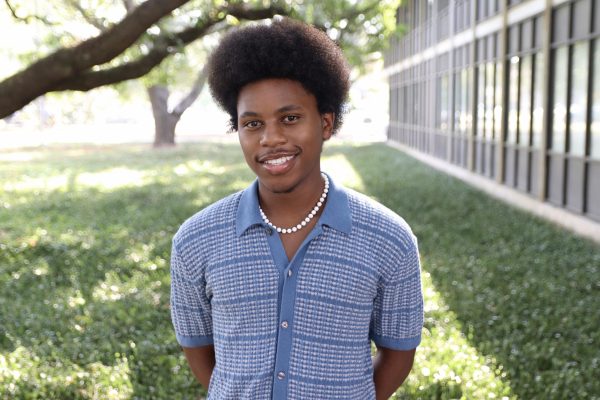
Kennith Woods is a sophomore communication major with a concentration in television and multimedia journalism and a creative writing minor. A resident...


